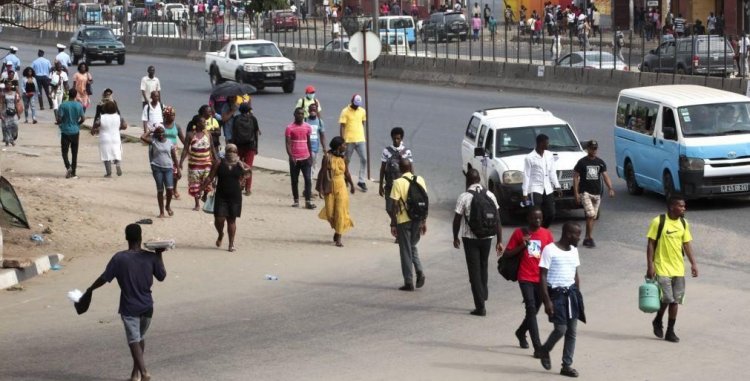"Almost 46 per cent of the population has no civil registration, in rural areas this figure goes up to 70 per cent," the economist recalled, in relation to the reality of the country, stating that "a country that cannot register its citizens has no way of making economic policy work.
The economist, speaking to Lusa in Luanda, added: "however good it may be, because economic policy focuses on economic agents, producers and consumers, as long as there is no free movement of people in Angola, which depends in part on civil registration and the granting of identity cards, the policy will not work".
Today the tax number has been unified with the identity card, but for citizens without an identity card "how will they be registered as taxpayers?
For the researcher at the Centre for Scientific Studies and Research (CEIC) of the Catholic University of Angola (Ucan), Angolan economic policy should only work with a "profound reform in the justice sector".
Until the Justice sector is able to register all property, all population and all assets, he observed, the economic policy "will not work, it will only be a makeup".
The master in macroeconomic policy considered that the main and structural reforms that should be made, so that Angola "walks in a dignified manner" and the economic policy works, "are not being made at the moment".
"It is necessary the civil registry of all citizens and the attribution of the identity card, it is necessary to register all the property, to attribute title of all the residences, agricultural and residential land", he defended.
He went on to say that even if banks want to give loans, they "cannot because they have no real guarantees".
A large part of Angolans, he stressed, "do not have title to their residences.
Angola has been going through a deep economic, financial and exchange crisis since the end of 2014 due to the fall in the price of oil on the international market, the biggest support for the Angolan economy with negative repercussions on the socio-economic condition of its citizens.
The covid-19 pandemic, caused by the new coronavirus, with a negative impact on world economies, especially on the price of a barrel of oil, quoted in recent days at less than 30 dollars/barrel, also affects the Angolan economy, with the authorities already announcing the revision of the General State Budget (OGE) for 2020 in May.
Contingency plans are underway in Angola to meet the challenges of covid-19, which is already hitting the country when it reaches its fifth of 15 days of state of emergency, with a record of seven confirmed positive cases, two deaths and one patient in recovery.
According to the Ucan professor, in times of crisis the period is the implementation of contingency plans, emergency plans, but he stressed that "the country has never been prepared, because unfortunately the reforms that are really deep have never been made".
"And necessary and these reforms don't cost much money", he stressed.
Among the measures envisaged in the contingency plan, approved last week by the economic committee of the Angolan Council of Ministers, is financial aid for 1.6 million families in need throughout the country.
Commenting on the measure, Francisco Paulo questioned the model for identifying families, when many do not have a civil registry: "Will they use the churches, political parties? How to help these people if we don't know who they are, to ensure there is no double help".
"It's important to reform," he insisted, praising the announcement of a reduction in ministerial bodies and arguing, at the same time, that civil servants should be paid "on the basis of productivity, not by academic degree.
In relation to the intensive liquidity programme announced by the National Bank of Angola (BNA), the economist pointed out that companies need liquidity, but this "will also be dependent" on late payments by the state.
"As most companies have the state as their creditor and as the state pays the arrears, the companies will probably have more liquidity and will be able to increase their investments," he said.







